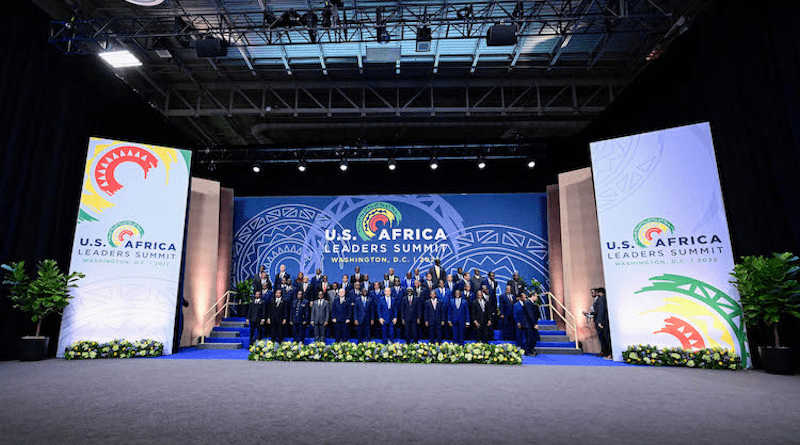Military Spending A Non-Issue At The US-Africa Leaders’ Summit – OpEd
By IDN
By Lisa Vives
Africa had a centre stage at a U.S.-based summit this month for what leaders hope will be more than a brief moment and whose achievements will be more than talk.
The U.S.-Africa Leaders’ Summit opened on December 13 with a full plate of critical topics—from the environment to public health, democratic governance and security.
Some 50 leaders who accepted the invitation from the Biden administration flew in with a long wish list of projects from trade deals to the fulfilment of pledges such as Biden’s promise to advance U.S.-Africa climate cooperation.
A $55 billion grant Biden promised to African countries could cover an expansion of educational scholarships for the continent’s youth—one-third of whom face chronic unemployment. An Obama-era scholarship program could be updated and configured to match or exceed Chinese leader Xi Jinping’s pledge in 2018 to provide “50,000 scholarships and 50,000 training opportunities” for young Africans.
But undergirding all the social development programs put forth by the Biden administration was the cost of the devastation in Africa linked to military and counterinsurgency programs while foreign powers tolerated official corruption, political leaders overstayed their constitutional term limits and human rights were violated.
Speaking on the news program Democracy Now, Emira Woods, executive director of the Green Leadership Trust, stressed this point. “We’ve got to understand the links of militarism to the fossil fuel crisis, to the climate crisis. We’ve got to begin to create other opportunities where fossil fuel companies are taxed, and we look at opportunities to actually cap the flow of these harmful fossil fuels into our global economy.
“And we’ve got to look at all of these opportunities to change global governance so that those particularly Black, Brown and Indigenous people have the opportunity for self-determination. This is the cry across the planet, self-determination of peoples.”
While assurances were made at the Summit that Africans would not have to choose between the U.S., Russia and China, a bill titled “Countering Malign Russian Activities in Africa” that would oblige Washington to punish African governments that abet Russian ‘malign’ activities recently passed in the House of Representatives by a bipartisan 415-9 vote.
The bill broadly defines such malign activities as those that ‘undermine United States objectives and interests.’ It would ‘hold accountable the Russian Federation and African governments and their officials who are complicit in aiding such malign influence and activities.’
South Africa’s International Relations Minister Naledi Pandor issued a rebuke: “When we speak about freedom, it’s freedom for everybody. You can’t say because Africa is doing this, you will then be punished by the United States.”
Samar al-Bulushi, assistant professor at UC Irvine and a contributing editor to Africa is a Country, observed: “U.S. preoccupation with questions of security and terrorism redirected donor funding away from issues of pressing concern to people on the continent (social welfare, education, development, jobs, etc.) … “We must scrutinize the rhetorical championing of “democracy” and “civil society”, lest it serves as a cover for new forms of repression,” she said.
Similarly, Alex de Waal, executive director of the World Peace Foundation, commented: “If the Biden administration is looking for a framework for partnering with Africa that steers a course between militarization and moralizing, it need look no further than Africa’s own norms and principles of governance and democracy. These are aspirational for sure, but aspirations forged in the recovery from conflict, state failure, and despair.”
America’s obsession with military solutions “rarely work as they fail to address the real drivers of militancy which are grinding poverty, environmental degradation and endemic corruption,” noted Michael Horton, fellow for Arabian Affairs at The Jamestown Foundation.
“The United States would achieve far more by working to find, understand, and enable local solutions to these core problems.”

